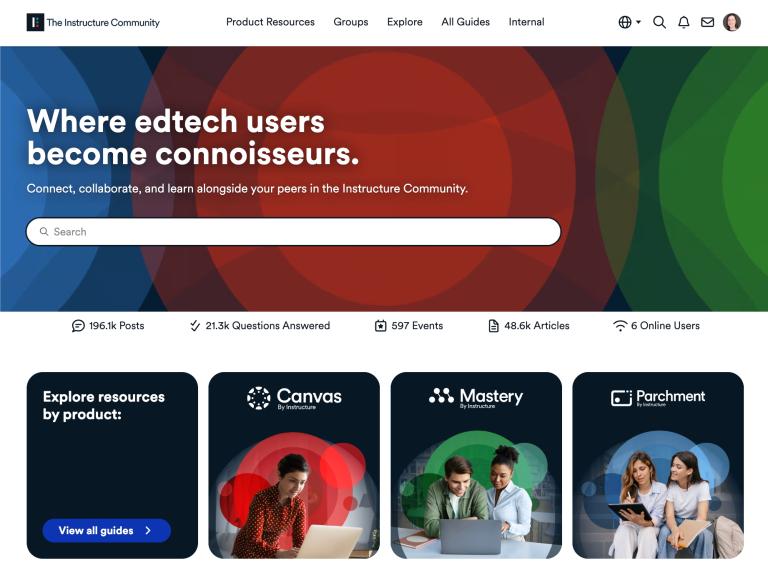Navarro College is a two-year college in semi-rural Texas with 9,000 students across five campuses. Prior to the pandemic, they identified a need for a proctoring solution to help ensure the integrity of exams delivered in Canvas – and also to meet an accreditation requirement to verify student identities for online coursework.
LockDown Browser and Respondus Monitor were selected by the college for remote proctoring. Adoption by instructors and students grew quickly. During the 2020-21 academic year, Navarro used Respondus Monitor to proctor over 35,000 exam sessions, with an average of five exams per course. In the first two months of the 2021-22 academic year, over 4,400 exams were proctored across more than 80 Canvas courses.
Top Factors in Choosing a Proctoring Solution
One of the top considerations by Navarro in selecting a proctoring solution was the ease of use for faculty and students. They did an informal survey to see which proctoring solutions were in use at other colleges, and the name Respondus kept coming up. The ubiquity of Respondus Monitor provided confidence to the team, along with the fact that Respondus had been in the exam integrity space for over 15 years. Another major consideration was price – the system had to be cost-effective from the start, and remain so as usage grew.
From Pilot to Campus-Wide Adoption
Navarro College piloted LockDown Browser and Respondus Monitor in early 2019, and rolled it out fully for the start of the Fall 2019 semester.
What happened next is no surprise. As the pandemic settled in the following year, faculty use of Canvas quizzes skyrocketed, as did the use of LockDown Browser and Respondus Monitor.
Things have since stabilized at Navarro. Today, individual departments determine the mode of testing and security wanted for examinations. Once the decision is made, it’s applied to all courses across the department. This helps ensure a consistent student experience, and avoids situations where students attempt to pick sections that are less-strictly proctored. Navarro also gives students the option of using on-campus and off-campus testing centers for online exams, giving students flexibility.
Best Practices for Increasing Faculty Usage
Navarro offers frequent professional development opportunities for faculty, despite having a staff of just two. Here are a few of the best practices they implement to ensure a smooth rollout with instructors and students.
Tip #1 - Set expectations with faculty and students.
Navarro emphasizes that proctoring technology is not magic. Instructors need to do their part in (a) designing exams that discourage cheating, (b) helping students understand what is considered cheating, and (c) ensuring that the exam integrity rules are enforced when problems arise.
It’s also important to remind students that remote proctoring is a convenience – a privilege. If that privilege is abused, it can be revoked.
And while the definition of cheating might seem obvious to an instructor, this might not be fully apparent to students. That’s why instructors need to be clear about what will (and won’t) be considered cheating. Students are used to looking things up on their phones – if that’s not permitted during an exam, explicitly say that. The goal is to clearly convey the boundaries of an exam violation, and to encourage students to be people of integrity. Finally, emphasize that the goal of online proctoring is NOT to catch students cheating, it’s to deter cheating and to create a level playing field for students in the class.
Tip #2 – Include an ethics statement in syllabus.
The support staff at Navarro provide faculty with an ethics statement that can be included in the syllabus. This boilerplate text enables faculty to pick and choose the sections they need, while ensuring consistency in messaging to students.
Tip #3 – Provide a practice quiz.
Practice quizzes are especially important and provide students a way to try Respondus Monitor with a Canvas quiz. If a problem arises, students can work through the issues without worry that the quiz will be graded. Practice quizzes are also a great way to set expectations. If there is a problem with the student’s examination environment (eg., poor lighting; poor internet connectivity), corrective guidance can be provided by the instructor.
Tip #4 – Approach academic integrity as an opportunity for “teachable moments.”
The Online Instruction team at Navarro talks about using academic integrity issues as teachable moments. Help students understand why an honor code is used, and the importance of doing their own work. Also, if students are solely focused on the grade for a course – rather than trying to learn as much as they can before they start their career – they are missing the point of college.
“Respondus Monitor was absolutely the right choice for Navarro College. The pricing is affordable, and their support is stellar. The company has been around for many years and really understands online assessments … Respondus is truly a partner, working with us to help students be good students.”
- Matt Miller, Dean of Online Instruction
For more information on how Respondus Monitor can prevent cheating during Canvas quizzes and tests across your entire campus, visit go.respondus.com/canvas_monitor.
Related Content
 inst-3step.jpg
inst-3step.jpgBlogs
 community-homepage.jpg
community-homepage.jpgBlogs
 kim-classroom.jpg
kim-classroom.jpgBlogs
